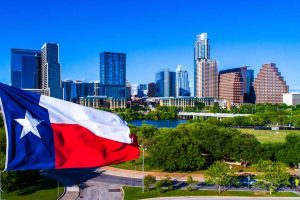People who have been fully vaccinated against COVID-19 may soon be cleared to gather in small groups without masks, according to federal officials.
The expected update to public health guidance, announced during a White House COVID-19 task force meeting, would mark the first sign of a return to normalcy since the start of the COVID-19 pandemic.
Dr. Anthony Fauci, the nation’s leading expert on infectious diseases, said that a small reunion of fully-vaccinated people presents a low risk of spreading the vaccine.
“I use the example of a daughter coming in from out of town who is doubly vaccinated, and a husband and wife doubly vaccinated, and maybe a next-door neighbor, who you know are doubly vaccinated,” Fauci said.
“Small gatherings in the home of people, I think you can clearly feel that the relative risk is so low that you would not have to wear a mask, that you could have a good social gathering within the home.”
Fully vaccinated individuals still shouldn’t expect guidance that suggests it’s safe to travel anytime soon. While coronavirus cases have taken a downward turn over the past month, the number of cases continues to grow all while coronavirus variants have emerged.
“The setting in a home of a small group of people having dinner together, all of whom have vaccinated, is very different when you step out the door and go into a society that has 70,000 new infections per day,” Fauci said.
It’s also possible for a vaccinated person to be an asymptomatic carrier of the virus that causes COVID-19, even if their body is protected from its effects. Health experts have said that it’s still unclear if a vaccinated person could unknowingly be infected with SARS-CoV-2 and transmit it to someone else.
For that reason, vaccinated people are advised to continue wearing face coverings in public and remain vigilant.
Here’s more on what we know about vaccine rollout:
How many people have been vaccinated in the U.S.?
Roughly 76.9 million vaccine doses have been administered throughout the country, according to the CDC. About 7.9% of the entire U.S. population has been fully vaccinated.
In California, more than 9 million doses have been administered. That’s less than the initial goal of 12 million doses by the end of February. But as vaccine supply continues to increase, officials hope that vaccine administration will increase significantly over the next two months.
How are vaccine doses allocated?
Vaccine supply is supposed to be allocated proportionally to a state’s population. If a state represents 2% of the country’s population, for example, the state should be allocated 2% of the overall vaccine supply. That goes for the Pfizer-BioNTech, and Moderna versions and the upcoming Johnson & Johnson vaccine, said Jeff Zients, the head of the Biden administration’s COVID-19 task force.
Supply within the state is then supposed to be allocated proportionally to each county, but access to vaccine supply has not always ensured equity.
Allocation to California has steadily increased from a rate of 200,000 to 500,000 doses per week to more than 1 million per week. But projections for future allocations have often been limited to week-by-week updates, which has made long-range planning difficult for state and local officials.
“Today is Wednesday and we have no idea how many doses we’re receiving next week,” Los Angeles County Public Health Director Barbara Ferrer said last week.
Is one vaccine better than another?
Three COVID-19 vaccines — Pfizer-BioNTech, Moderna and the Johnson & Johnson single-shot Janssen vaccine — have so far been authorized for use by the U.S. Food and Drug Administration. The federal advisory committee on immunization practices does not state a specific preference for any one vaccine and recommends that people get the vaccine that’s available to them.
“The most important thing you can do is to be ready to get the vaccine that is available to you. It will help protect us all from COVID-19,” CDC Director Dr. Rochelle Walensky said Monday.

















